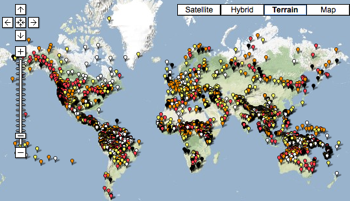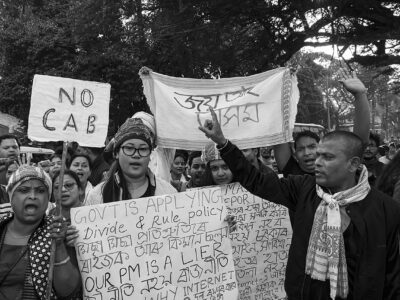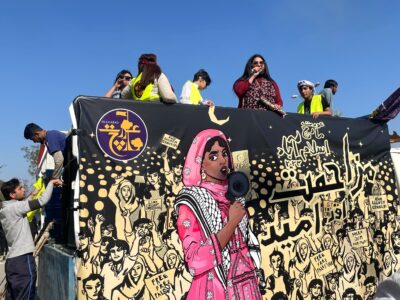(Marihana fa efa tamin'ny volana Febroary taona 2009 ny lahatsoratra teny Anglisy)
Navoakan'ny Fikambanana Ara-panabeazana, ara-tsiantifika sy Ara-kolontsaina ao amin'ny Firenena Mikambana (UNESCO) ny Sarintany ifarimbonana misy ireo fiteny tandindonin-doza, izay mampiseho ireo tenin-drazana 2.500 amin'ireo 6000 ahiana hanjavona. Mangataka amin'ny mpiserasera ny fikambanana iraisam-pirenena mba handray anjara amin'ny fanehoan-kevitra amin'ny tetikasa izay mampanahy ireo bilaogera maro ny fitandroana ny kolontsaina.

Sarintanin'ny UNESCO Milaza ireo fiteny tandindonin-doza
Iglesia Descalza, mpivaro-boky:
As someone who loves languages, I am chagrined to read the news coming out of UNESCO's presentation of the updated Atlas of the World’s Languages in Danger of Disappearing. According to the Atlas, unveiled on the eve of International Mother Language Day (21 February), nearly 200 languages have fewer than 10 speakers and 178 others have between 10 and 50 speakers.
The data shows that out of the 6,000 languages currently in existence, over 200 have died out over the last three generations, 538 are critically endangered, 502 severely endangered, 632 definitely endangered and 607 unsafe.
As the last remaining speakers of a language pass away, the language itself dies. The language of Manx in the Isle of Man died out in 1974 when Ned Maddrell, the last speaker, passed away while Eyak, in Alaska, United States, met its demise last year with the death of Marie Smith Jones.
[…]
We need to prize bio-diversity, cultural and racial diversity, and linguistic diversity because we lose too much by becoming homogenized into one big, white, English-speaking society.
Amin'ny maha-olona tia fiteny ahy, dia malahelo aho mamaky ireo vaovao avy amin'ny fampahafantaran'ny Atlas ao amin'ny UNESCO momba ireo Teny Eto An-tany Tandindonin-doza. Araka ny voalazan'ny Atlas, navoaka andro mialoha ny Andro Iraisam-pirenena ho an'ny Tenin-drazana (21 Febroary), fiteny efa ho 200 no manana mpiteny (mpampiasa ny teny) latsaky ny 10 ary ny 178 hafa dia manana mpiteny eo anelanelan'ny 10 ka hatramin'ny 50.
Mampiseho ny tahiry fa amin'ireo fiteny 6000 izay misy ankehitriny, maherin'ny 200 no efa maty nandritra ny taranaka telo farany, 538 no tandindonin-doza, ary 502 atahorana ho very, ny 632 kosa tandindonin-doza tanteraka ary ny 607 tsy afa-bela.
Rehefa maty ireo sisa hany mpampiasa ny fiteny, dia maty koa ny fiteny. Maty ny fiteny Manx ao amin'ny nosy Man tamin'ny taona 1974 raha namoy ny ainy i Ned Maddrell, sisa mpampiasa ny fiteny. Ny fiteny Eyak, any Alaska, Etazonia kosa maty tamin'ny herintaona rehefa maty i Marie Smith Jones.
[…]
Mila miaro ny fahasamihafana ara-tontolo iainana, ara-kolontsaina sy ny ara-poko, ary ny fahasamihafan'ny fiteny isika satria very tanteraka isika amin'ny alàlan'ny fampitoviana ao anatin'ny fiarahamonina matanjaka sy fotsy hoditra ary miteny Anglisy.
Raha ireo fitenin'ny olona tompotany miatrika ny fanatontoloana sy ny nasionalismam-panjakana ny ankamaroan'ireo fiteny manjavona, milaza i Daniel Moving Out, bilaogy avy amin'ny teratany Portiogey monina any Angletera ankehitriny, fa tsy ny fiteny “tsy ofisialy” rehetra no maty:
[…]
The Galician sounds like a cross between Spanish and Portuguese, somewhat like a dialect originated from the second and enriched with vocabulary and accent of the first. The language is originated from the Galician-Portuguese of medieval times, and it was spoken at all the County of Portucale. […]
This week, the Unesco atlas of world languages was released, regarding Galician as a strong language among those that are not the main languages of any country. It receives protection from the Castilian (common Spanish) from being geographically close to Portugal.
[…]
Ny Galisiana dia mitovitovy amin'ny fifangaroan'ny Espaniola sy ny Portiogey, tahaka ny fitenim-paritra iray avy amin'ny Portiogey ary nampiana voambolana sy tondro-peon'ny Espaniola. Avy amin'ny Galisiana-Portogey tamin'ny vanim-potoana Antenantenany ny fiteny, ary nampiasaina tao amin'ny faritr'i Portucale manontolo. […]
Navoaka tamin'ity herinandro ity ny atlas Unesco momba ny fiteny manerantany, ary nametraka ny Galisiana ho toy ny fiteny matanjaka eo amin'ireo izay tsy tenim-pirenena lehibe ao amin'ny firenena. Mahazo fiarovana avy amin'ny Castilian (Espaniôla iombonana) izy noho izy akaiky ara-jeografika amin'i Portiogaly.
[…]
Na izany aza, mamintina ny sasany amin'ireo rakitra ratsy indrindra ny bilaogy:
[…]
199 languages have less than a dozen of native speakers. In Indonesia, the 4 remaining speakers of Lengilu talk within [themselves]; the Karaim in Ukraine is kept by only 6 people. Over than 200 different languages have disappeared in the last 3 generations. The Manx, from the Isle of Man, here in the UK died with the last native speaker in 1974.
[…]
Fiteny 199 no ampiasain'ireo teratany latsaky ny folo. Any Indonezia, olona 4 sisa no hany mampiasa ny fiteny Lengilu eo amin'ny [samy izy ireo]; Ny fiteny Karaim ao Okraina kosa dia tsy misy afa-tsy olona 6 ihany no mampiasa azy. Maherin'ny 200 ireo fiteny samihafa nanjavona nandritra ireo taranaka 3 farany. Ny Manx, avy any amin'ny Nosy Man, eto Angletera dia maty niaraka tamin'ny fahafatesan'ny mpiteny azy farany tamin'ny taona 1974.
Saingy tsy ny rehetra no miahiahy amin'ny fanjavonan'ny fiteny. Maneho hevitra ao amin'ny TED blog i Magnus Lindkvist manao hoe:
[…] Why do we insist on romanticizing ancient languages that arguably noone wants to speak anymore? What about the hundreds of new programming languages that have sprung up in the past decades? Or the infinite variations of English that people are adopting and “remixing” to make their own around the world? These are real languages and show a lot more vitality than Manx and Tirahi.
[…] Nahoana isika no manizingizina hampihetsi-po ny fitenin-drazana izay tsy misy olona te hampiasa azy intsony? Ary ahoana ny amin'ireo fiteny fandrafetandrindrabaiko an-jatony vaovao izay nipoitra tato anatin'ny folo taona? Na ireo fiovaovana tsy manam-petra amin'ny teny Anglisy izay ampiasain'ny olona sy “afangaron'ny” olona araka izany tiany manerana izao tontolo izao? Ireo no tena fiteny ary mampiseho hery be lavitra noho ny Manx sy Tirahi.
Abdullah Waheed, teratany mpiteny ny fiteny Dhivehi – fiteny “ofisialy” izay tsy dia maro mpampiasa ao Maldives – manazava amin'ny ohatra iray mikasika ny maha zava-dehibe ny fiarovana ny fiteny:
[…]
Dhivehi language is absolutely vital to the identity of Maldivians as a people and Maldives as a country, because it is the only feature we all share and which few others have. It is a strategic factor in our advances towards sustainable development and the harmonious coordination of our affairs.
Far from being a field reserved for writers, Dhivehi lies at the heart of all social, economic and cultural life. Dhivehi does matter to all of us. It matters when we want to promote cultural diversity, and fight illiteracy, and it matters for quality education, including teaching in the first years of schooling. It matters in the fight for greater social inclusion, for creativity, economic development and safeguarding indigenous knowledge.[…]
Tena zava-dehibe ho an'ny mari-panondroana Maldiviana amin'ny maha vahoaka azy sy i Maldiva amin'ny maha-firenena azy ny fiteny Dhivehi, satria izy no hany famantarana tokana iombonanay sy tsy hananan'ny hafa. Sehatra stratejika amin'ny fahazoanay ny fampandrosoana maharitra sy ny fandrindrana mirindra ny fiharianay izany.
Tsy fiteny voatokana ho an'ireo mpanoratra velively, fa miorina ao anatin'ny fiainana rehetra ara-tsosialy, ara-toekarena sy ara-kolontsaintsika ny Dhivehi. Sarobidy ho anay rehetra ny Dhivehi. Zava-dehibe ny fanirianay hampiroborobo ny fahasamihafana ara-kolontsaina, ary hiady amin'ny tsy fahaizana mamaky teny sy manoratra, ary manan-danja ho an'ny kalitaon'ny fanabeazana izany, anisan'izany ny fampianarana amin'ny taona voalohany any an-tsekoly. Zava-dehibe ao anatin'ny ady mba hahazoana firaisaina ara-tsosialy, famoronana, fampandrosoana ara-toekarena sy fiarovana ny fahalalana tompotany bebe kokoa izany.






